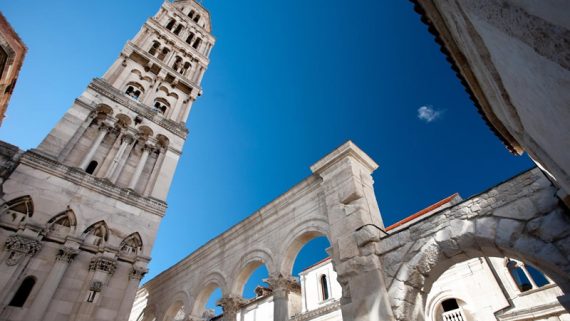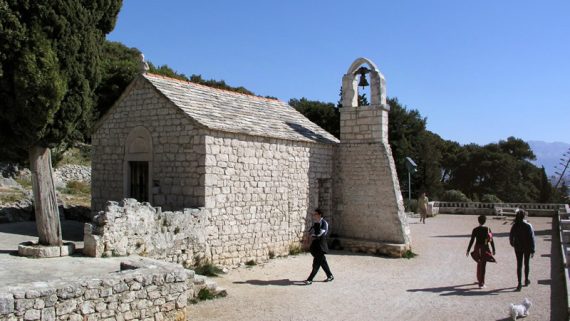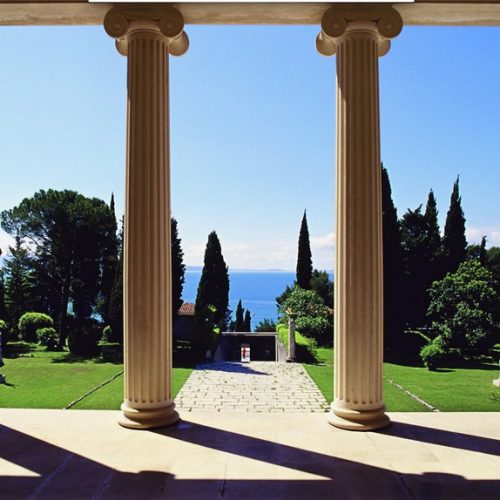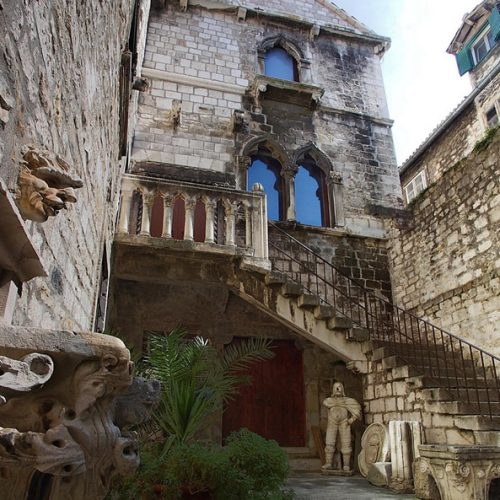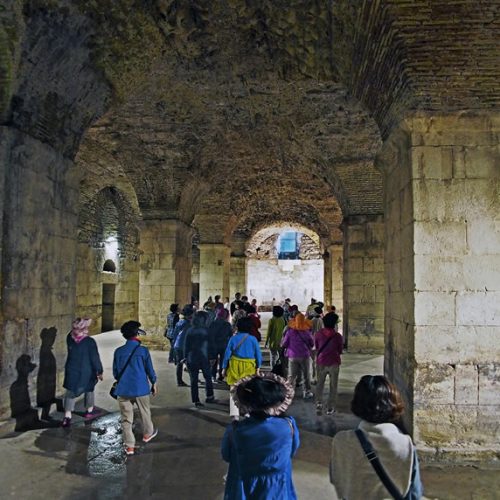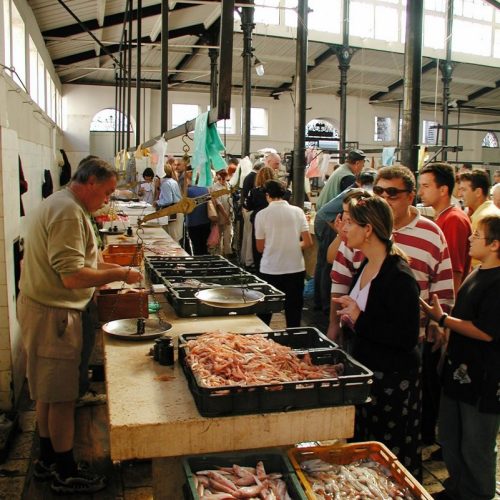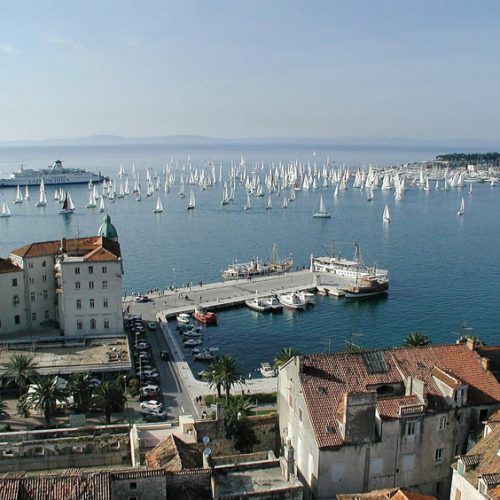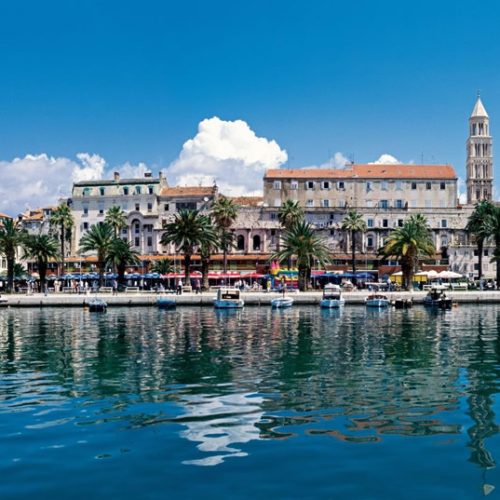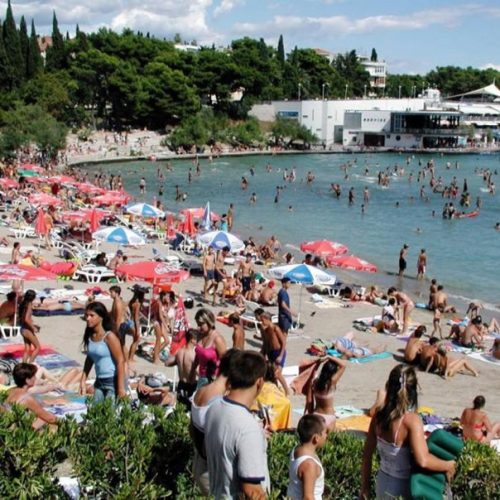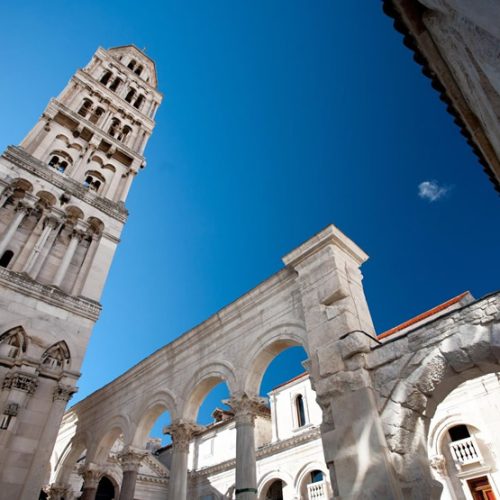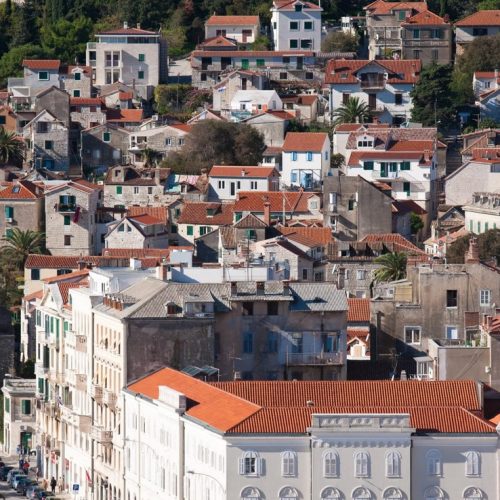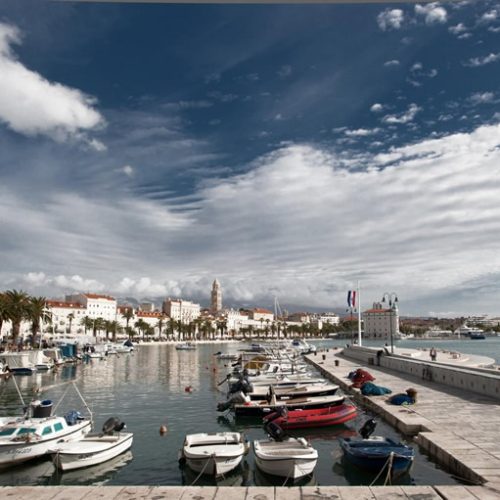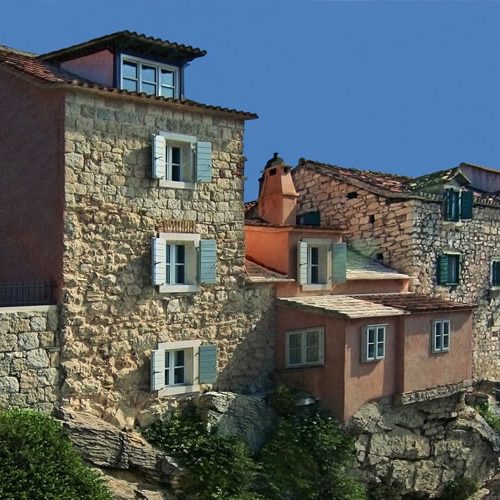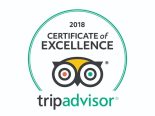Una giornata certamente deve essere riservata per la piacevole passeggiata a Marjan, non solo fino al belvedere, ma anche più avanti, per i sentieri boscosi adatti ad ogni tipo di ricreazione – camminate, jogging, arrampicate, ciclismo e, in estate, nuoto o remo in kayak… Questa collina verde nella parte occidentale della penisola, che come un custode naturale sorveglia la città estesa ai suoi piedi, già da tempo rappresenta il più importante simbolo di Spalato.
Dall’antichità Marjan è un rifugio spirituale degli spalatini che ospita numerose chiesette, di cui alcune scolpite nelle rocce della pendice sud. In ogni parte della collina troverete pace e, lontani dal brulichio cittadino, godrete la vista della città e i suoi dintorni alla terra e al mare, fino alle isole più lontane. Ai piedi della pendice sud si trova il più visitato museo di Spalato, la Galleria di Ivan Meštrović e il suo Castelletto, che ospita una ricca collezione di opere di questo famoso scultore croato.
Al ritorno da Marjan potete visitare altri musei della città, Museo dei Monumenti Archeologici Croati o Museo Archeologico, che conservano tesori dei tempi passati. Vale la pena di visitare anche Museo Civico, Museo Etnografico, Galleria dell’Arte con una delle maggiori collezioni d’arte nazionale ed internazionale nel paese, Museo Marittimo nella fortezza Gripe, Hall of Fame dello sport spalatino che ricorda numerosi atleti spalatini grazie ai cui successi Spalato oggi è considerata una vera e propria metropoli sportiva.
Si può visitare anche lo stadio Poljud, dove gioca l’Hajduk, il più popolare club calcistico in Croazia, fondato nel lontano 1911 e orgoglioso dei suoi titoli e trofei e della sua tifoseria Torcida, una delle prime in Europa.
Non perdete di visitare alcune delle numerose chiese, come eccezionali monumenti dell’architettura sacra, cominciando dalla già menzionata cattedrale di San Doimo e continuando con il convento di Sant’Antonio a Poljud, la chiesetta medievale di Santa Trinità, la chiesetta di San Martino nel muro settentrionale del palazzo di Diocleziano, la chiesa di San Francesco a Riva, la sinagoga risalente al XVI secolo…
La permanenza di tre giorni vi permetterà, inoltre, di assaggiare specialità dei numerosi ristoranti per i quali negli ultimi tempi Spalato è diventata un’importante destinazione gastronomica. Potete divertirvi anche nei diversi eventi, dai concerti e serate organizzate nei club e locali della città, ai festival di musica, film e teatro o spettacoli nel Teatro Nazionale di Spalato – il programma viene pubblicato regolarmente sul sito dell’Ente del Turismo.

 Italiano
Italiano Hrvatski
Hrvatski English
English Deutsch
Deutsch
